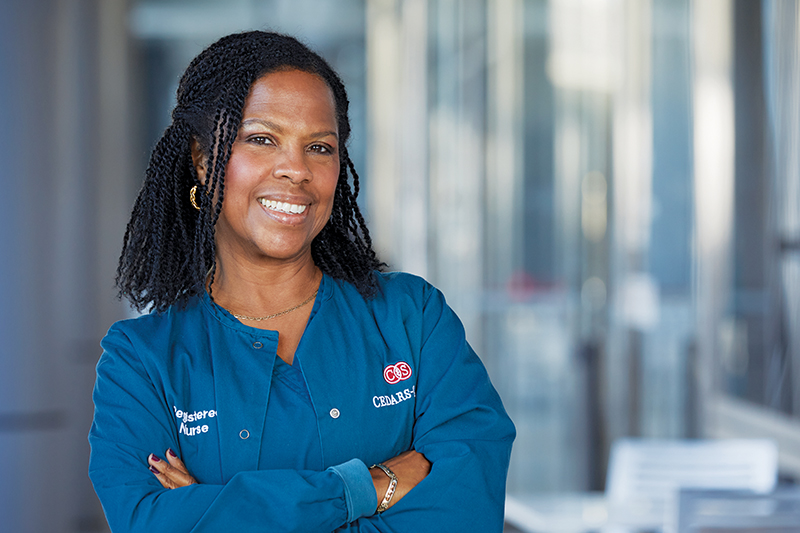My Specialty
Postpartum Nursing, Pascale Middleton, Cedars-Sinai
Teaching expectant parents to care for their babies and themselves

Pascale Middleton, RNC, BSN
Clinical Nurse III
Postpartum Unit, Department of Obstetrics
Cedars-Sinai, Los Angeles
Tell us about your nursing background.
When I was young, my mom said, “You should be a nurse.” Not one month later, my high school science teacher reiterated what my mom had said. He thought I would do really well in the nursing program at Adelphi University on Long Island, N.Y., so he submitted his recommendation with my application. I earned my BSN in 1985.
I’ve found that the beauty of a nursing career is that we can always find work when we relocate. My husband was a pastor, so we traveled a lot. Aside from New York, we also lived in Connecticut, New Jersey, and Florida.
While we were in Connecticut, I fell in love with postpartum nursing while working at Yale New Haven Hospital. After we moved to Los Angeles, I applied to Cedars-Sinai as a postpartum nurse. I’ve been here ever since.
What do you especially love about OB and postpartum?
The teaching aspect is especially close to my heart. It honestly gives me an adrenaline rush to watch new parents become more comfortable with their baby and everything that being a parent entails. I get to teach them the meat and potatoes of how to take care of their babies and themselves. This is my joy.
I also teach the “Baby Basics” portion of the prenatal program for expectant parents at Cedars-Sinai. It’s wonderful and inspiring how hungry expectant parents are for information, fishing for everything they can learn, which gives me the opportunity to impart my knowledge to them.
I get to meet many graduates of this program after their birthing experience, and they remember me as their teacher. That’s really gratifying.
What’s changed the most in the years you’ve been working in OB?
I would say that charting has changed the most. I love that there’s no more paper charting. Pyxis medication management is a change as well, of course, but we still always need to learn medication dosages. Other than that, the birthing process hasn’t changed very much, although we definitely see more and more mothers with medical complications, since so many now have babies when they’re older.



